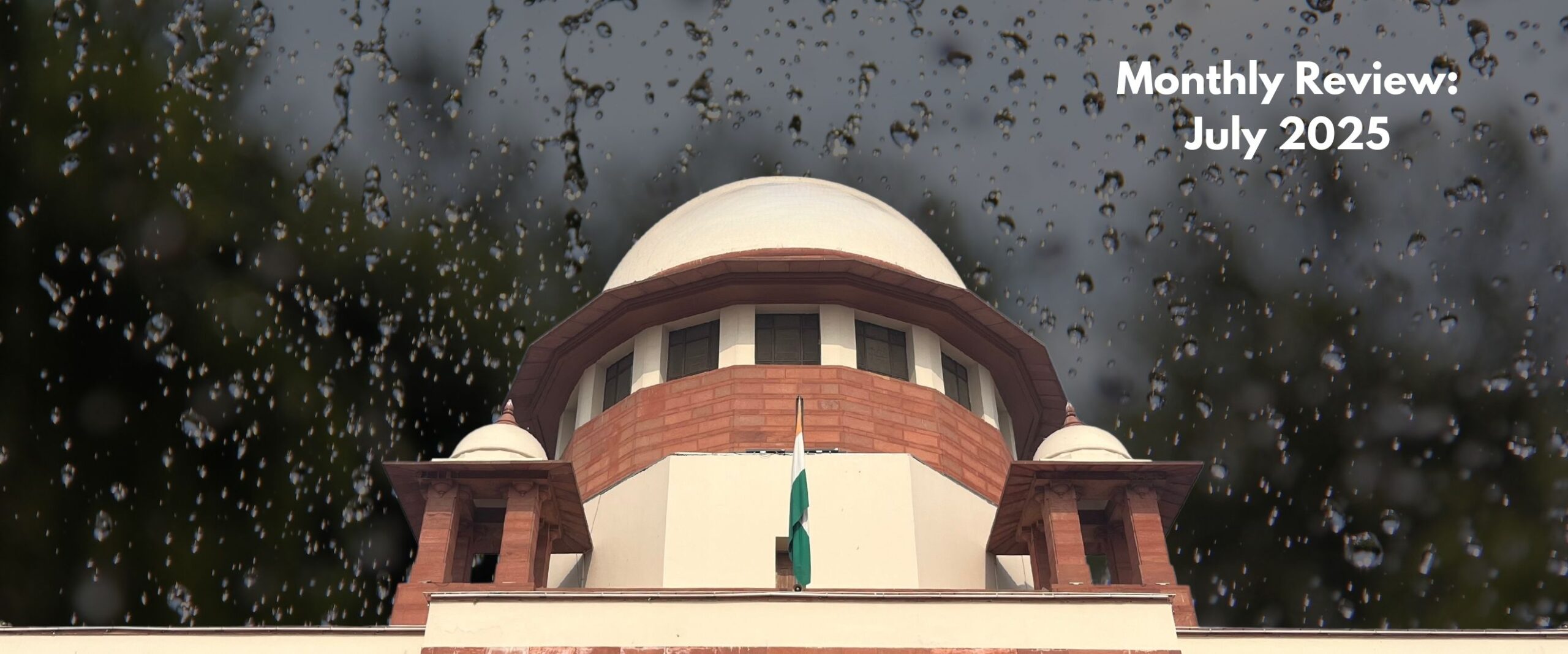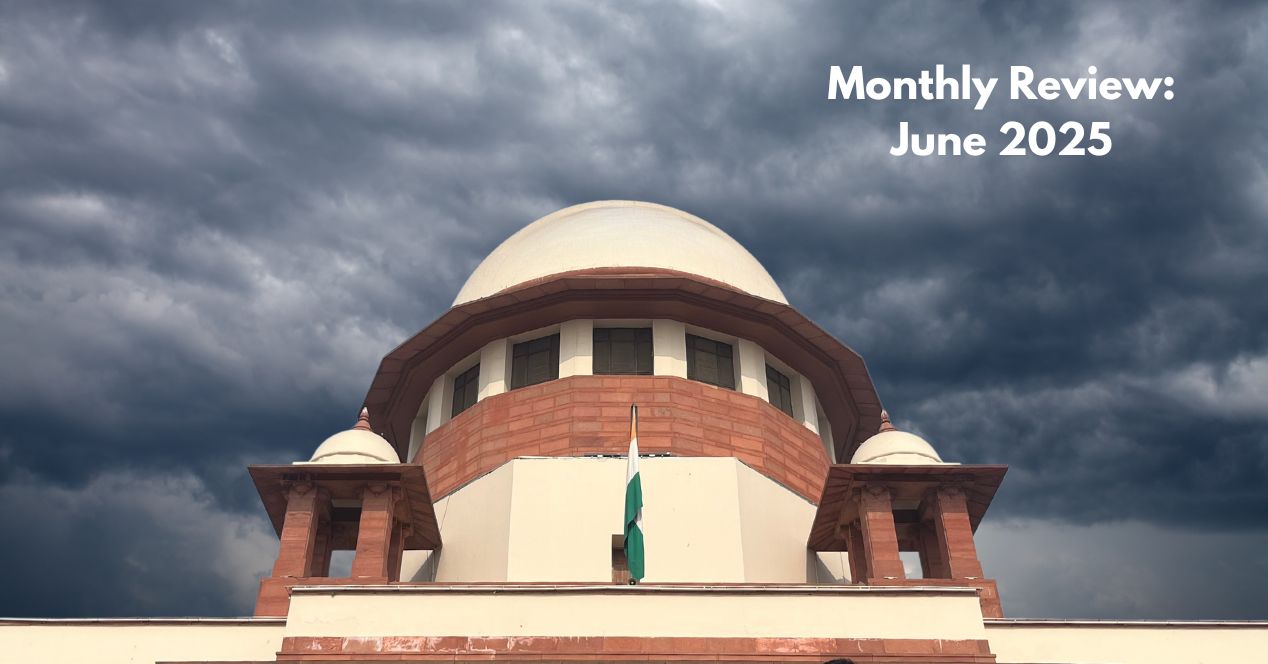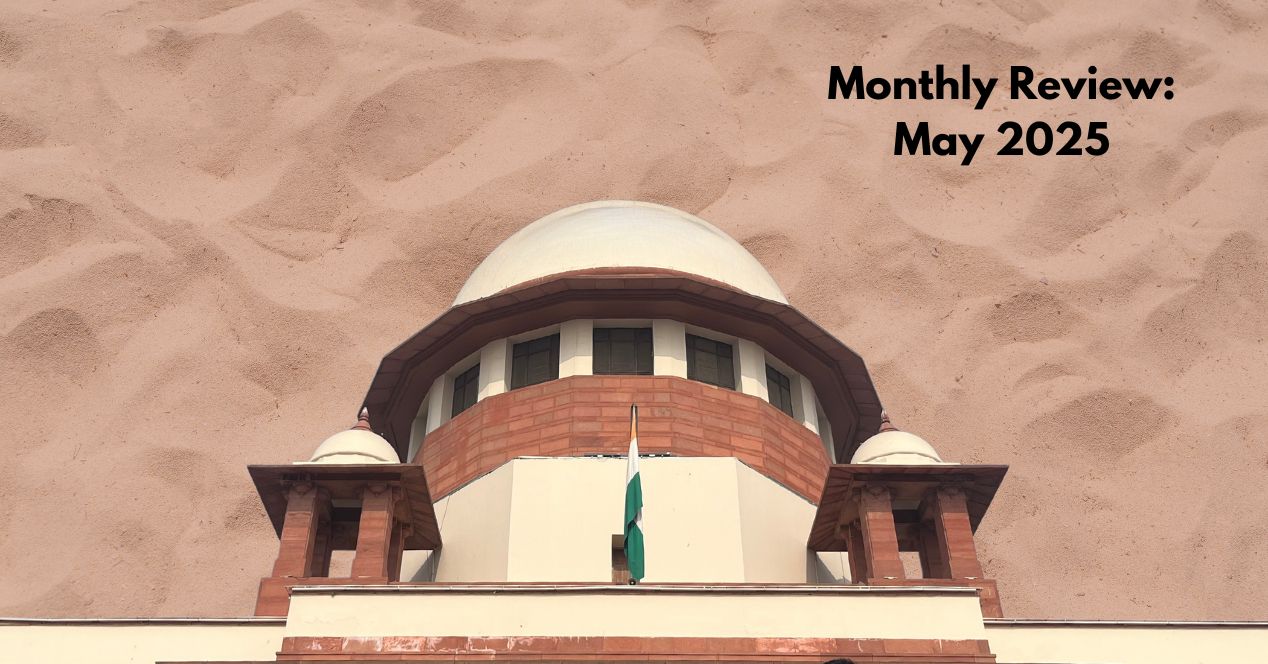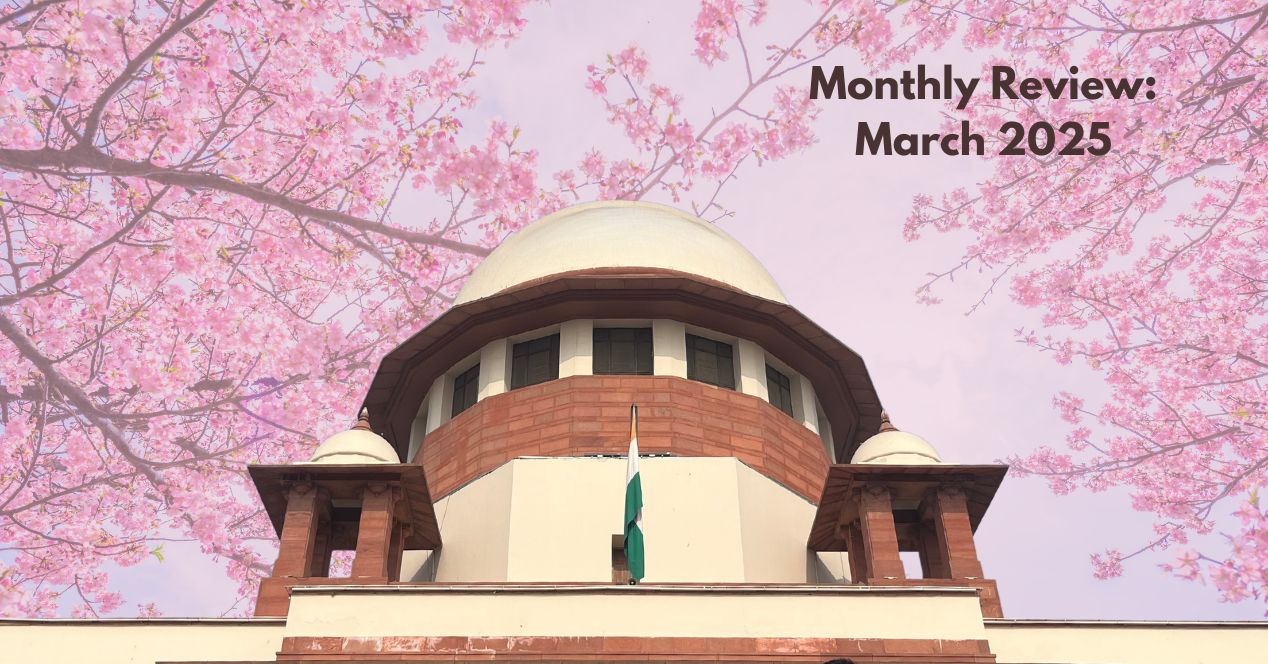Analysis
Monthly Review: July 2025
A presidential reference, a voter list revision in Bihar, free speech jurisprudence—July was a busy month for the SC and the SCO

In July, the Supreme Court resumed work after seven weeks of Partial Working Days. Key headlines included a Constitution Bench beginning to hear the Presidential Reference on Governor’s powers and a Division Bench hearing the challenge against the Election Commission of India’s Special Intensive Revision of Bihar’s electoral rolls.
For our editorial team, July marked the completion of uploading all back issues of the Supreme Court Observer Law Reports (SCO.LR) on the HTML page. SCO.LR brings you five unmissable judgements each week.
Here are highlights of the month.
Governor’s powers, President’s questions
On 22 July, a Constitution Bench assembled for the first time in Chief Justice B.R. Gavai’s tenure. The occasion was the hearing of the Presidential Reference on the powers of the President and Governors to grant assent to Bills passed by state assemblies. The Bench issued notice to all parties and decided to push the hearing of detailed arguments to August.
The reference followed the Court’s Judgement in the Tamil Nadu Governor. There, Justices J.B. Pardiwala and R. Mahadevan held that the Governor could not indefinitely delay assent to Bills. In a first, the Bench also prescribed timelines for the President and Governors to act on state bills.
A month later, President Droupadi Murmu invoked the Court’s advisory jurisdiction under Article 143 of the Constitution to refer 14 questions on the scope of these powers.
Kerala withdraws petition
In July, the Court also heard the Kerala government’s challenge to former Governor Arif Mohammed Khan’s three-year delay in granting assent to eight bills passed by the state legislature.
Senior Advocate K.K. Venugopal, representing the state, had sought to withdraw the petition since May this year. He argued that the petition had become “infructuous” after the Court’s judgments in the Tamil Nadu and Punjab Governor cases, which made it clear that Governors could not indefinitely delay assent to state bills.
On 25 July, the Court finally allowed the state to withdraw its petition. The state will not argue before the larger Bench in the Presidential Reference on the same subject.
No immunity for Speaker as adjudicating authority
On 31 July, the Supreme Court held that the Speaker of a state assembly does not enjoy constitutional immunity when acting as an adjudicating authority. The Court clarified that the Speaker functions as a tribunal when deciding disqualification petitions against MLAs.
The decision came in a petition filed by two MLAs of the Bharat Rashtra Samithi of Telangana. They had cited a significant delay by the Speaker in deciding disqualification petitions against 10 MLAs who had defected from the BRS to the Congress. The Court directed the Speaker to decide the petitions within three months.
We also put out a desk brief on the decision, which asks whether the Court could have taken matters into its own hands and decided the anti-defection petitions.
Roll revision in Bihar
On 24 June, the Election Commission of India (ECI) announced a Special Intensive Revision (SIR) of Bihar’s electoral rolls ahead of state elections. This was the first such exercise since 2003 and was aimed at including all eligible voters and removing ineligible ones. The ECI stated that the SIR was necessary to take into account the rapid urbanisation, migration, the addition of young voters, underreported deaths and the presence of illegal immigrants in the state.
In early July, the Association for Democratic Reforms, political analyst Yogendra Yadav and others moved the Supreme Court under Article 32, challenging the SIR as arbitrary and violative of universal adult suffrage. They argued that exclusion of Aadhaar and Ration Cards as identity proof documents could disenfranchise millions in a state with a large and migrant population.
They also highlighted that the exercise was impractical to carry out, noting that 20,000 of the 1 lakh Booth Level Officers required for form evaluation are yet to be appointed.
The petitioners sought an immediate stay on the exercise. On 10 July, a Bench of Justices Shudhanshu Dhulia and Joymalya Bagchi heard the parties on the matter of stay. They didn’t grant the petitioners’ request but urged the ECI to consider Aadhaar as a valid proof.
Here and there on free speech
Recent Supreme Court rulings have drawn contrasting reactions to free speech. Its sharp criticism of an extra-judicial ban on the film Thug Life was widely praised, while an earlier bail order against a university professor attracted strong criticism. Earlier, in March, the Court held that courts must protect art forms like poetry, comedy and literature. The Court also held that officers must spare the time to read or hear words before filing an FIR. These instances raise the question: Where does the Court really stand on free speech? We explored here.
We also looked at the Court’s stance on free press, especially since the Emergency. Read here.
On 9 May, a Bench of Justices A.S. Oka and Ujjal Bhuyan set aside a Delhi High Court order directing the Wikimedia Foundation to take down a Wikipedia page containing details of a defamation suit filed by Asian News Network (ANI) against the Foundation. Read our analysis of the ‘open justice’ considerations in the Court’s Judgement here.
Half-year reviews
In the first half of the year, the Court delivered significant judgements on bail, child rights, arbitration and free speech. In July, our interns wrote half-year reviews on each of these themes.. Read them here, here, here and here.
Other Vacation Bench activity
On 25 June, the Supreme Court stayed a summons issued by the police against an Ahmedabad-based lawyer in connection with his client’s loan repayment case. We examined some judicial precedents on the subject of the counsel-client relationship here.
On 2 July, in ABC v State of Chhattisgarh, the Supreme Court granted bail to a child who was in custody for 16 months. We examined the bail provision under the Juvenile Justice Act, 2015, and whether it is the rule or the exception here.
Changes in the Court
Staff reservations
Over the years, the Court has shaped the contours of affirmative action through its judgements. But it took until July 2024 for the Court to extend reservations for Scheduled Caste and Scheduled Tribe employees within its own staff. The long timeline speaks to the glacial pace of certain institutional changes. It is fitting that the decision was finally taken by only the second Dalit Chief Justice in the Court’s 75-year history. We wrote about this move here.
New case categorisation system
This year, the Court introduced a new case categorisation system based on the recommendations of a committee led by Justice P.S. Narasimha. The new system is meant to iron out the category overlaps and redundancies that were bothering both the Registry and Advocates on Record. We spoke to practitioners to find out whether the new system has reduced friction in filing. Read the report here.




